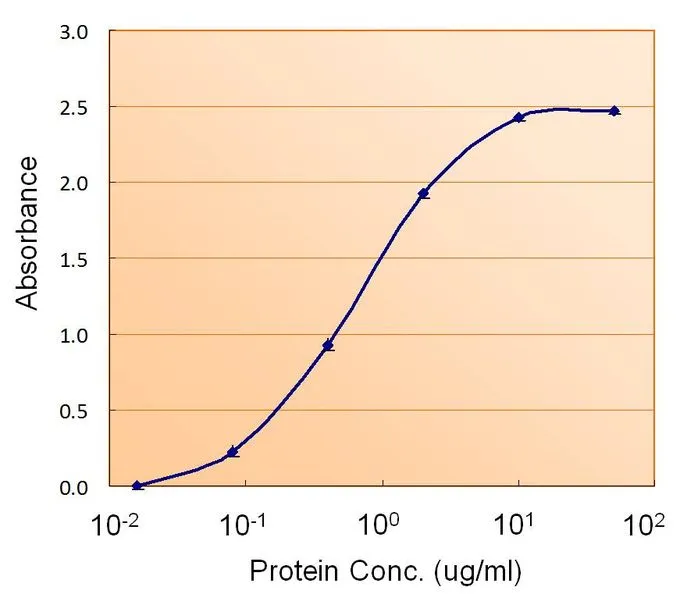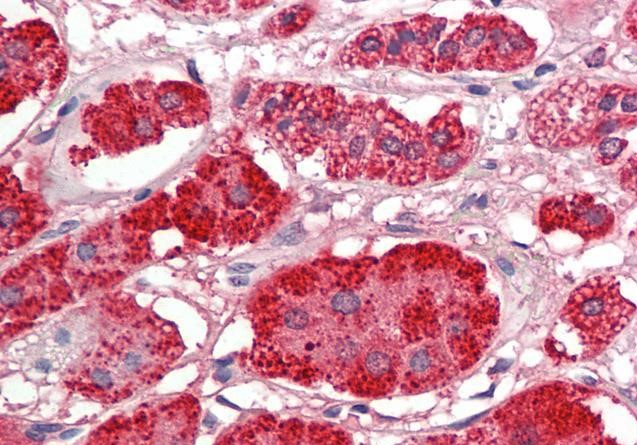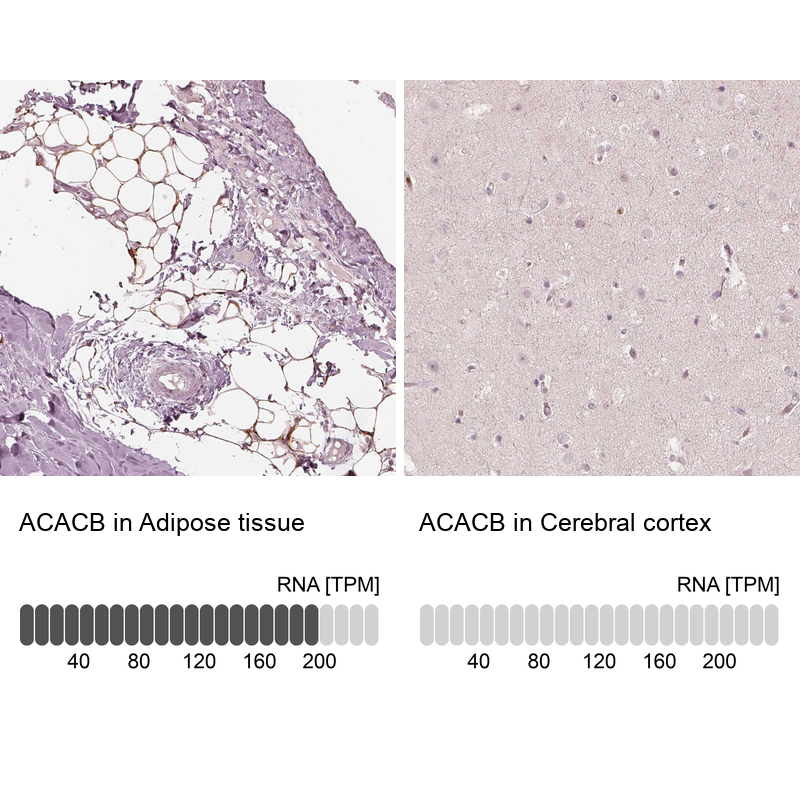
ELISA analysis of ACACB protein using GTX89089 ACACB antibody, Internal. This antibody was used as a detecting antibody. Dilution : 1.5μg/ml
ACACB antibody, Internal
GTX89089
ApplicationsWestern Blot, ELISA
Product group Antibodies
ReactivityHuman
TargetACACB
Overview
- SupplierGeneTex
- Product NameACACB antibody, Internal
- Delivery Days Customer7
- ApplicationsWestern Blot, ELISA
- CertificationResearch Use Only
- ClonalityPolyclonal
- Concentration0.50 mg/ml
- ConjugateUnconjugated
- Gene ID32
- Target nameACACB
- Target descriptionacetyl-CoA carboxylase beta
- Target synonymsACACbeta, ACC-beta, ACC2, ACCB, ACCbeta, HACC275, acetyl-CoA carboxylase 2, acetyl-Coenzyme A carboxylase beta
- HostGoat
- IsotypeIgG
- Protein IDO00763
- Protein NameAcetyl-CoA carboxylase 2
- Scientific DescriptionAcetyl-CoA carboxylase (ACC) is a complex multifunctional enzyme system. ACC is a biotin-containing enzyme which catalyzes the carboxylation of acetyl-CoA to malonyl-CoA, the rate-limiting step in fatty acid synthesis. ACC-beta is thought to control fatty acid oxidation by means of the ability of malonyl-CoA to inhibit carnitine-palmitoyl-CoA transferase I, the rate-limiting step in fatty acid uptake and oxidation by mitochondria. ACC-beta may be involved in the regulation of fatty acid oxidation, rather than fatty acid biosynthesis. There is evidence for the presence of two ACC-beta isoforms. [provided by RefSeq, Jul 2008]
- ReactivityHuman
- Storage Instruction-20°C or -80°C,2°C to 8°C
- UNSPSC41116161
References
- DEHP deregulates adipokine levels and impairs fatty acid storage in human SGBS-adipocytes. Schaedlich K et al., 2018 Feb 22, Sci RepRead this paper







